How To Maintain An Outdoor Garden Kitchen

Outdoor garden kitchens are increasingly popular, especially in areas with great weather year-round. After all, who wouldn’t want to cook some great meals surrounded by their favorite plants? However, you’re not alone if you are curious about how to maintain a garden kitchen.
Outdoor karden kitchen maintenance is all about cleaning up messes when they show up to prevent mold and deter animals. You must also seal the surfacers to protect them from the elements, as humidity and temperature changes can damage them. Ideally, you should cover your grill and appliances to prevent corrosion.
Never use harsh chemicals on any surface in your outdoor kitchen unless you know it’s okay to use them on that material. Otherwise, you may discolor your stovetop or counters. Follow along as we explore how to maintain a garden kitchen.
Outdoor Kitchen Maintenance Tips
Maintaining a garden kitchen is 50% preventative maintenance and 50% quick action. You can easily maintain a garden kitchen with a few simple yet important steps, such as:
1. Remove Food Scraps Right Away
Cooking some nice spring, summer, and fall meals in your garden kitchen is a blast. When you’re having fun, it’s easy to forget about cleaning up, or at least put it off for too long. However, doing so can create some stubborn issues that will be harder to clean later.
You must clean all food scraps, crumbs, and stains right away when using an outdoor kitchen. Leaving food scraps out can contribute to mold, leave stains, and attract pests. The last thing you want is moldy garden kitchen countertops, drawers, and burners.
Even worse, you don’t want to find animal droppings and nests in and around your outdoor kitchen. After eating, spend a few minutes wiping the countertops and brushing crumbs off the surfaces to ensure nothing remains. Doing so is worth the effortwill and will make long-term maintenance much easier.
2. Clean And Cover Your Grill
No outdoor garden kitchen is complete without a grill, and you hopefully get a lot of use out of yours. However, leaving it uncovered can shorten its lifespan, create stubborn messes, and attract animals. Before you know it, your grill will wind up corroded and full of debris if you don’t keep it covered when not in use.
Let the grill cool down when you're done cooking, then carefully remove the grates to access the area underneath. Use a grill scraper to scoop out food remnants, grease, and ashes, then dump them into a waste container. Gently scrape the walls to remove remnants as well, but be careful not to apply too much pressure.
Once your grill is clean, check the temperature to ensure it’s fully cooled down. Now, you can cover your grill to keep fallen leaves, yard debris, and animals out. Make sure the cover is airtight to deter any curious animals.
3. Regularly Clean The Drain
The drain in a garden kitchen sink is just as prone to clogs as your indoor drains. In many cases, they’re even more prone to clogs due to the added outdoor debris. That’s why you must clean your outdoor kitchen sink drain a few times per month, especially during the summer.
Ideally, you should always keep a drain snake and enzyme cleaner on hand for preventative maintenance. Pour some enzyme cleaner down the drain one night a month, then run hot water down the drain in the morning. This can help loosen and dislodge any stubborn debris, soap scum, and grease in the drain.
For big clogs, pour ½ cup of baking soda down the drain, followed by ½ cup of distilled white vinegar. The chemical reaction can dislodge tricky clogs and ensure your outdoor kitchen sink drains well. Otherwise, you can use a simple drain snake to remove clogs and keep your drain running smoothly.
4. Cover All Appliances
The appliances in your outdoor kitchen are more vulnerable than your indoor appliances. That’s because the stove, oven, and plumbing fixtures are exposed to the elements. The temperature fluctuations and humidity alone are enough to damage outdoor appliances.
Purchase covers that are rated for outdoor use to protect your appliances from the elements. Some outdoor stoves come with a cover, but you may need to buy one separately. You may even want to drape a cover over the countertops, as they may suffer damage from thermal shock.
Thermal shock is a possibility when it’s hot during the day and cold at night, and cracks may form. Check to see if the company that manufactured your appliances and countertops sells covers. Otherwise, you can improvise and use thick tarps, and weigh them down.
5. Seal The Surfaces
The countertops and cabinets in your outdoor kitchen are vulnerable to cracks, stains, wear and tear. That’s especially true if you don’t seal them, which is a big mistake you must avoid. The ideal sealant ultimately depends on the material, such as marble.
For example, you must use an impregnator sealant for porous surfaces, like limestone and marble. Whatever sealant you use, make sure that it’s formulated for the material in question. This will affect how it adheres to the surface, how quickly it cures, and how effective it is.
6. Use Mild Cleaning Products
It’s tempting to buy the strongest cleaning products on the market and use them in your garden kitchen. However, doing so can damage your furniture, countertops, cabinets, and appliances. Some people neglect how effective something as simple as white vinegar and dish soap is.
Mild dish soap mixed with warm water can remove many stubborn stains without discoloring the surface. Conversely, using strong chemical cleaners containing bleach can discolor your steel appliances. While vinegar is quite effective, you shouldn’t use it on natural stone, as the acidity can damage it.
Use mild dish soap and water to clean your counters, and save the vinegar for your stovetop. Only use strong chemicals for stubborn stains, but only if you research them first. The last thing you want to do is stain or weaken expensive appliances.
7. Keep Animals Out
As we mentioned, the food scraps in your outdoor kitchen can attract animals. However, animals and bugs will likely show up even if you regularly clean your garden kitchen. You are in their territory, so you must keep that in mind and get creative when deterring animals.
For example, it helps to place ultrasonic devices in the soil near your outdoor kitchen. These devices emit sounds that humans can’t hear, but many animals can. The sound is annoying enough to make most animals think twice about going near your outdoor kitchen.
It also helps to install motion-activated lights in or around your garden kitchen. That way, a bright light will flash when animals approach, and it will scare them off. Deterring animals can keep your appliances clean and ensure they don’t scratch everything.
Does An Outdoor Kitchen Add Value To Your Home?
An outdoor kitchen can add value to your home, but it’s hard to pinpoint by how much. For example, a poorly maintained garden kitchen can negatively impact your home’s value. Potential buyers may even request that you have the kitchen removed before they move in, in extreme cases.
However, a well-built, well-maintained outdoor kitchen in an area with great weather is quite desirable. That’s especially true if you have a nice, big yard with an impressive garden, which can add value itself. Garden kitchens don’t add as much value in areas with cold winters, as the buyer won’t get as much use out of them.
The better and more durable the materials are, the more you can increase your return on investment. Stainless Steel and high-end natural stone can add value and appeal to potential buyers. That said, you shouldn’t build a garden kitchen solely to boost home value, as it may not work.
Summing It Up
The best way to maintain a garden kitchen is to clean your messes as they appear to avoid problems later. You must also seal the countertops and cabinets to protect them from temperature fluctuations and humidity. Avoid using harsh chemicals, which can damage the surfaces and appliances, and clean the sink drain monthly.
Related Guides:

Nick Durante is a professional writer with a primary focus on home improvement. When he is not writing about home improvement or taking on projects around the house, he likes to read and create art. He is always looking towards the newest trends in home improvement.
More by Nick Durante











![Finishing Basement Without Permit [Is It Really Illegal?]](https://cdn-fastly.upgradedhome.com/media/2023/07/31/9070078/finishing-basement-without-permit-is-it-really-illegal.jpg?size=350x220)
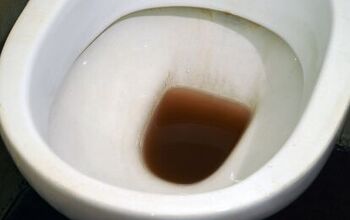
![10 Best Electric Lawn Mowers - [2022 Reviews & Top Rated Models]](https://cdn-fastly.upgradedhome.com/media/2023/07/31/9070486/10-best-electric-lawn-mowers-2022-reviews-top-rated-models.jpg?size=350x220)

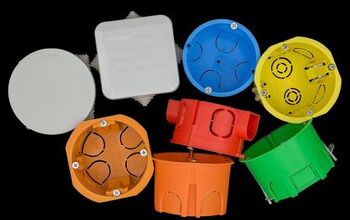

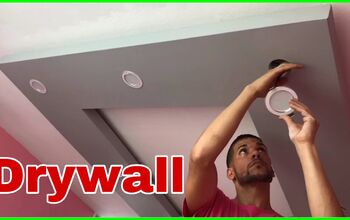
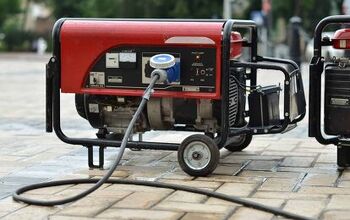



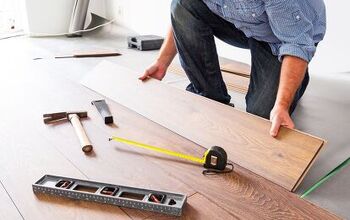



![10 Most Dangerous Neighborhoods in Baltimore [Updated]](https://cdn-fastly.upgradedhome.com/media/2023/07/31/9075655/10-most-dangerous-neighborhoods-in-baltimore-updated.jpg?size=350x220)
